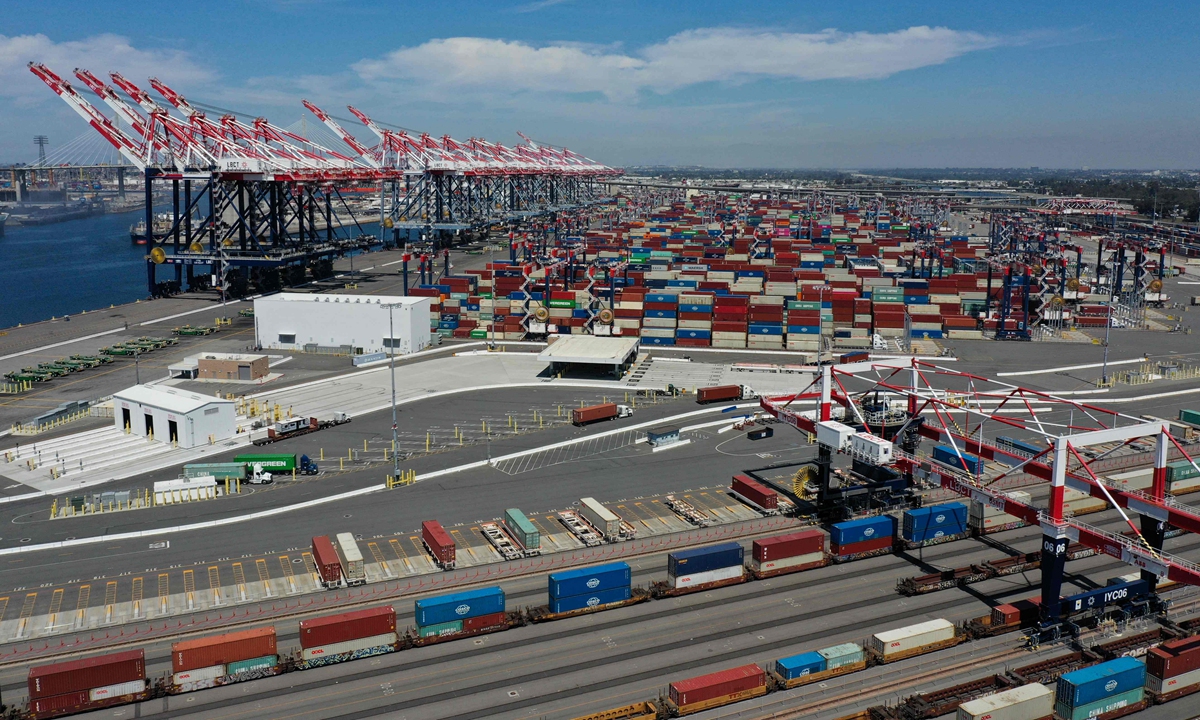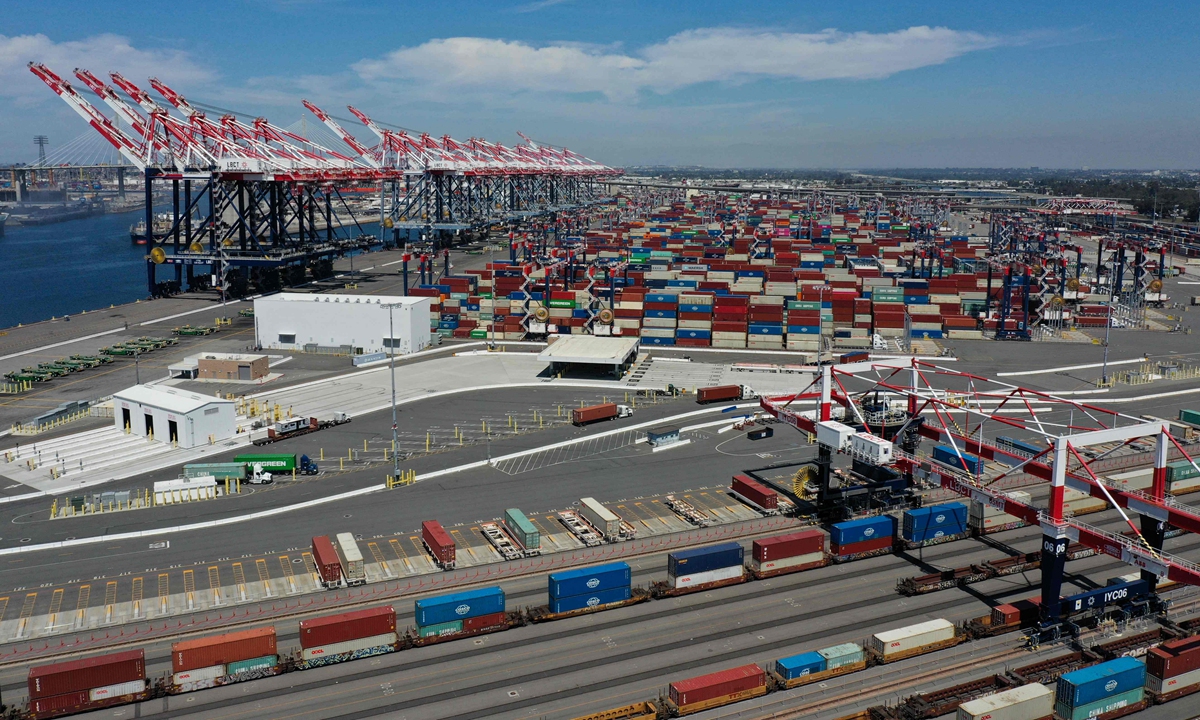

An aerial image shows cargo shipping containers and cranes as cargo containers sit stacked on freight trains at the Port of Long Beach in Long Beach, California on April 10, 2025. Photo: VCG
Twelve states in the US on Wednesday urged a federal court to strike down President Donald Trump’s sweeping taxes on imports, saying he had exceeded his authority, left US trade policy dependent on his whims and unleashed economic chaos, Associated Press (AP) reported on Thursday.
According to the report, these states are challenging tariffs that Trump imposed last month on most of the countries in the world in an effort to reverse America’s massive and longstanding trade deficits. They are also targeting levies the president had earlier plastered on imports from Canada, China and Mexico to combat the illegal flow of immigrants and the synthetic opioids across the US border.
A three-judge panel of the US Court of International Trade, which deals specifically with civil lawsuits involving international trade law, heard arguments in the states’ case in New York on Wednesday, the AP reported.
On April 2, 2025, the Trump administration declared a national emergency and announced that it would be imposing a 10 percent tariff on most imports to the US and additional duties on certain trading partners. The US government cited the International Emergency Economic Powers Act of 1977 (IEEPA) as its underlying authority, according to a release by the US congress on its official website.
However, even after the US announced a 90-day suspension of reciprocal tariffs for most countries and recently reached a 90-day tariff truce with China, significantly reducing tariff levels, domestic lawsuits challenging the government’s tariff policies continue to proceed.
The US administration is now facing at least seven lawsuits that argue the government is gone too far and asserted power the government does not have, the AP report said.
The IEEPA had never been used to impose tariffs before the US government used it in February to impose tariffs on Canada, China and Mexico, and the administration also used it on “Liberation Day” to impose much broader tariffs, a previous Bloomberg report said.
During Wednesday’s lawsuit, the states argue that the emergency economic powers act does not authorize the use of tariffs. Even if it did, they say, the trade deficit does not meet the law’s requirement that an emergency be triggered only by an “unusual and extraordinary threat.’’
The US tariff hike has rattled global markets and raised fears that they would disrupt commerce and slow US and global economic growth, while facing ongoing domestic opposition, He Weiwen, a senior fellow at the Center for China and Globalization, told the Global Times.
“If the US government does not reconsider its trade policies, it will face growing backlash both at home and abroad,” He said.
In April, dozen US states, led by New York’s governor and attorney general, joined together on a lawsuit aiming to block the US government spate of tariffs that have upended global trade, arguing that the US president lacked the authority to impose the levies. It notes such tariffs must be approved by the US Congress.
However, the US continues to threaten tariffs on other countries. The US government will impose tariffs at the rate he threatened last month on trading partners that do not negotiate in “good faith” on deals, Reuter citing US Treasury Secretary Scott Bessent reported on Sunday.
For now, many US businesses are struggling to cope with the government’s tariffs, which have lifted America’s average tariff to the highest level since 1934 — even after a trade truce with China was announced recently, according to Yale University’s Budget Lab.



